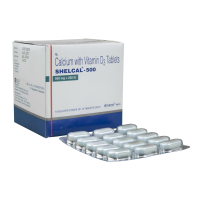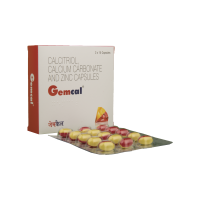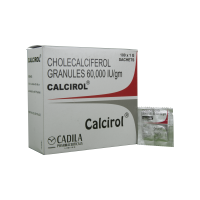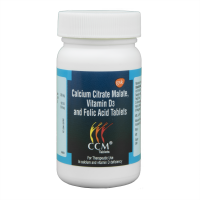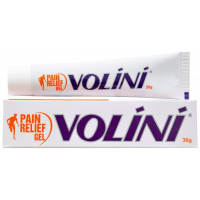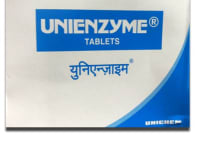USED FOR:
Bacterial infections
Gout
COMPOSITION:
Cefalexin (500mg)
Probenecid (500mg)
Therapeutic Uses:
anti infectives
pain analgesics

Interaction with alcohol is unknown. Please consult your doctor.

Unknown. Human and animal studies are not available. Please consult your doctor.

Ceff LA 500mg/500mg Tablet is probably safe to use during lactation. Limited human data suggests that the drug does not represent a significant risk to the baby.

It is not known whether Ceff LA 500mg/500mg Tablet alters the ability to drive. Do not drive if you experience any symptoms that affect your ability to concentrate and react.

CAUTION
Ceff LA 500mg/500mg Tablet should be used with caution in patients with kidney disease. Dose adjustment of Ceff LA 500mg/500mg Tablet may be needed. Please consult your doctor.Use of Ceff LA 500mg/500mg Tablet is not recommended in patients with severe kidney disease.

CAUTION
Ceff LA 500mg/500mg Tablet should be used with caution in patients with liver disease. Dose adjustment of Ceff LA 500mg/500mg Tablet may be needed. Please consult your doctor.
Uses of Cefalexin
Cefalexin is used in the treatment of bacterial infectionsIt is used for short-term treatment of bacterial infections of urinary tract, skin and soft-tissue, blood, abdomen, genital and lungs (pneumonia). It is also used to prevent infections after surgery.
How to use Cefalexin
Take this medicine in the dose and duration as advised by your doctor. Swallow it as a whole. Do not chew, crush or break it.
How Ceff LA 500mg/500mg Tablet works
Cefalexin is an antibiotic. It works by preventing the formation of the bacterial protective covering which is essential for the survival of bacteria in the human body.
Common Nausea, Diarrhoea, Allergic reaction.
Expert advice for Cefalexin
Your doctor has prescribed Cefalexin to cure your infection and improve symptoms. Do not skip any doses and finish the full course of treatment even if you feel better. Discontinue Cefalexin and inform your doctor immediately if you get a rash, itchy skin, swelling of face and mouth, or have difficulty in breathing. Diarrhea may occur as a side effect but should stop when your course is complete. Inform your doctor if it doesn't stop or if you find blood in your stools. If you're on blood thinners, Cefalexin can interact with your medications and increase your bleeding tendencies.
Q. Does cephalexin contain sulfa or penicillin?
Cephalexin does not contain sulfa and is not penicillin. It is a cephalosporin antibiotic
Q. Is cephalexin the same as Keflex, Sporanox, or amoxicillin?
Keflex is a brand name for cephalexin, but Sporanox and amoxicillin are other drugs
Q. Is cephalexin safe?
Cephalexin is safe if used at prescribed doses for the prescribed duration as advised by your doctor
Q. Can I take cephalexin with citalopram, or vitamins?
Yes, you can take cephalexin with citalopram, or vitamins
Q. Can I take cephalexin for a cold?
Cephalexin treats infections caused by bacteria. It does not treat a viral infection such as the common cold or flu
Q. Does cephalexin treat sexually transmitted diseases (STDs), methicillin-resistant staphylococcus aureus (MRSA), staph infections or bacterial vaginosis (BV)?
Cephalexin is not approved to treat STDs and is not active against MRSA. It may be used against staph infections, but is not very effective against bacterial vaginosis.
Uses of Probenecid
Probenecid is used in the treatment of gout.
How to use Probenecid
Take this medicine in the dose and duration as advised by your doctor. Swallow it as a whole. Do not chew, crush or break it.
How Ceff LA 500mg/500mg Tablet works
Probenecid decreases the uric acid levels in the blood by increasing its excretion in urine.
Common Hypersensitivity reaction, Gastrointestinal irritation.
Expert advice for Probenecid
Do not use probenecid along with salicylates like aspirin.You may be prescribed colchicine or non-steroidal anti-inflammatory agent (NSAID, pain killer) to prevent severe gouty attacks during the first 6 to 12 months of probenecid therapy.Consult your doctor before starting probenecid treatment if you have or ever had kidney stones, any other kidney disorder, ulcers in the stomach and small intestine (peptic ulcers),diabetes, severe liver disorders, blood disorders or glucose 6-phosphate dehydrogenase (G6PD) deficiency.Inform your doctor about any scheduled surgery for which you would be receiving anesthetics.You should take adequate water or fluids while taking probenecid to prevent kidney stones.Tell your doctor if you are pregnant or planning to become pregnant or are breastfeeding.Take precautions while driving or operating machinery, as probenecid is known to cause dizziness.
Q. Is probenecid an NSAID/ antibiotic/ sulfa drug/ diuretic?
No. Probenecid belongs to a class of medications called uricosuric agents and is used to reduce high levels of uric acid in the body and to prevent and treat gout and gouty arthritis. It has no anti-inflammatory effect like NSAIDs or activity against infections like antibiotics or sulfa drugs. It is only used in combination with antibiotics (e.g. penicillin, ampicillin, amoxicillin etc.) to prolong their effect during infection. It has no effect on increasing urine output and is not a diuretic
Q. Probenecid is combined with penicillin/ why is probenecid given with penicillin/ how does probenecid work with penicillin/ how does probenecid increase penicillin/ what effect does probenecid have on penicillin?
In certain cases of serious infections (e.g. gonorrhea or neurosyphillis) probenecid may be prescribed along with antibiotics like penicillin to prolong the effect of the antibiotics given by any route. Probenecid inhibits the elimination (excretion from blood into the urine) of certain antibiotics like penicillin by the kidneys thereby delaying its excretion and increasing concentration in the blood
Q. What is Probenecid used for?
Probenecid is a uricosuric agent and is used to reduce high levels of uric acid in the body and to prevent and treat gout and gouty arthritis (pain and inflammation of small joints due to deposition of uric acid in the joint). It is also used to prolong the effect of antibiotics (e.g. penicillin)
Q. Does Probenecid cause kidney stones?
Yes. Kidney stones are among the known side effects of Probenecid treatment.
Dr Reddy's Laboratories Ltd
₹13.42/Capsule Out of stock


 Ceff LA 500mg/500mg Tablet
Ceff LA 500mg/500mg Tablet  Bookmark
Bookmark
